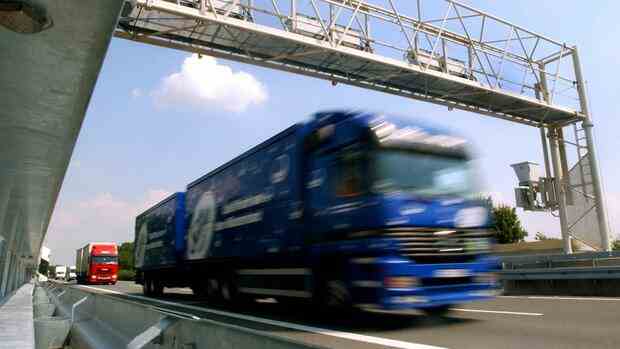Previously, it had been planned that CO2 emissions from trucks and buses would fall by 30 percent by 2030.
(Photo: dpa)
Berlin According to the EU Commission, in the fight against climate change only trucks and buses with low residual CO2 emissions should be sold from 2040 onwards. The CO2 emissions of new vehicles must then be 90 percent lower than in 2019, said Commission representatives on Tuesday in Brussels.
At the same time, the EU Parliament formally decided that new cars must be climate-neutral from 2035, which is considered the end of the classic combustion engine. The Commission, Member States and Parliament had already agreed on this beforehand. The states must also approve this as the last thing in the Council, which is considered safe. The aim is for the EU to be climate neutral by 2050.
The 90 percent target for trucks falls short of what the Netherlands, Belgium, Luxembourg and Denmark called for last month. Environmental groups argue that diesel trucks will still be on the road in 2050.
Other EU countries, on the other hand, are of the opinion that the year 2040 is too early for truck manufacturers to switch to alternative drive systems. Parliament and the member states must now discuss the Commission’s proposal.
Federal Transport Minister Volker Wissing (FDP) once again campaigned for the use of so-called e-fuels for cars, trucks and buses – i.e. synthetically produced, climate-neutral fuels. “To achieve our climate goals, we have to keep all options and technologies open,” he explained. “We must not do without e-fuels. Both for the existing fleet and for new vehicles, e-fuels offer climate-neutral mobility with combustion engines. This also applies to trucks and buses.”
E-fuels only allowed for special vehicles
However, according to current decisions, e-fuels are only possible in cars for special vehicles after 2035. The Ministry of the Environment relies on electric cars, at least for cars, and wants to reserve the scarce e-fuel capacities for air or ship traffic.
Environment Minister Steffi Lemke was satisfied with the EU Parliament’s decision: “The agreement is a great step forward for climate protection and will advance the transport sector on the way to climate neutrality,” said the Green politician. “Because there is still a lot to do in the transport sector. This gives the European automotive industry the planning security it needs for the transformation.”
The transport sector causes the biggest problems when it comes to climate protection, especially in Germany. He failed to meet the legal requirements in 2021 and is likely to have done so again in 2022.
More: European industry promotes synthetic fuels
